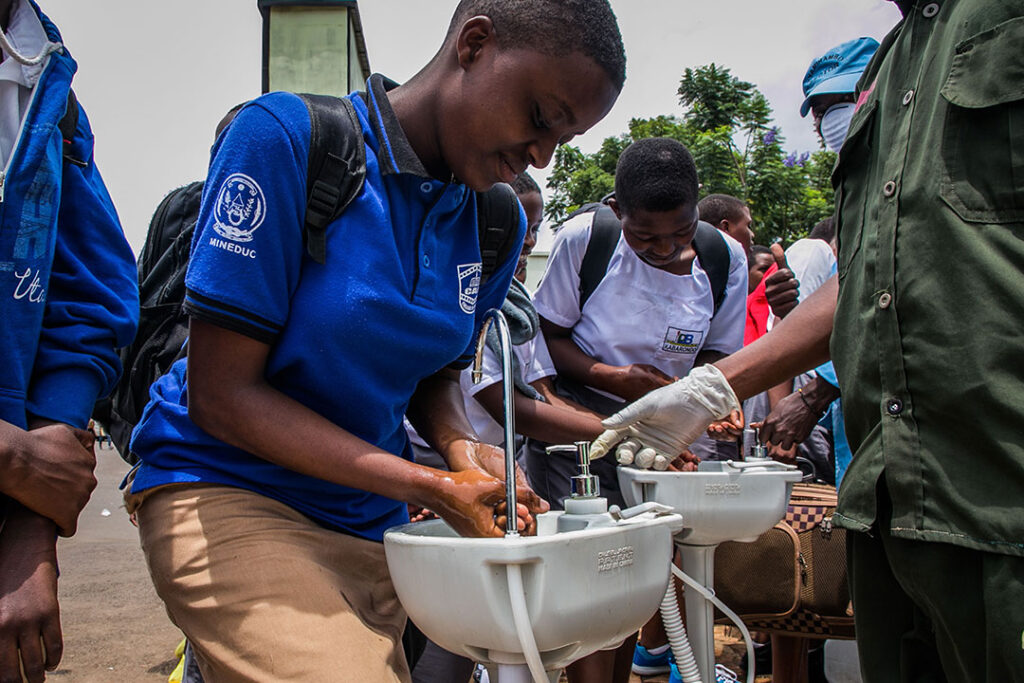ADF STAFF
Praise has come from around the world for Rwanda’s successful response to COVID-19, which is highlighted by high-tech interventions.
The country has had five deaths among 1,689 recorded cases of COVID-19 as of July 22, according to the Africa Centres for Disease Control and Prevention. Much of its success is due to conducting 225,652 tests.
Rwanda acted fast. In early March, on the recommendation of a COVID-19 task force, officials suspended flights to some of the most affected countries, installed thermal cameras at Kigali International Airport, and set up hand-washing stations and sanitizers where usage was required before boarding buses. Prime Minister Dr. Edouard Ngirente urged citizens to avoid traditional greetings.
“We urge everyone to avoid especially handshaking and close body contact, e.g., hugging,” a statement read.
On March 20, Rwanda became the first country in Sub-Saharan Africa to order a total lockdown. During the first phase, the government noticed noncompliance with preventive measures such as mask wearing, social distancing, hand-washing and staying at home.
The national police used drones equipped with high-definition cameras to spot offenders and speakers to broadcast directives and awareness messages.
There are “unnecessary isolated incidents of selfish business owners who are being willingly negligent,” Rwanda National Police spokesman John Bosco Kabera told The New Times. “Our intention is not to punish or detain anyone. However, we have to enforce the directives.”
The government conducted free testing, tracing and treatment while giving daily briefings.
Among Rwanda’s other high-tech approaches: winged drones deliver tests and supplies to rural health centers up to 80 kilometers away; the Rwanda Utilities Regulatory Authority uses nationwide cellular tracing to track COVID-positivepatients and anyone they contact; officials adopted mathematically modeled pool testing to make the most of testing resources while expanding data gathering; and the government waived transaction fees on mobile payments to discourage citizens from using cash.
The United Nations’ Development Program donated five anti-epidemic robots that were deployed May 19. Four went to two treatment centers, while another was sent to Kigali International Airport.
The bots interact with crowds, instruct people to adjust face masks, scan the temperatures of up to 150 people per minute, and gather data for health workers to deploy interventions and resources. In treatment centers, the bots deliver medicine and food to patients, cutting down on health care workers’ exposure.
Overall, Rwanda has used careful planning and innovation to contain the spread of the virus.
The results speak for themselves. Lockdowns are long gone, tourism is back, hotels can host conferences, and Kigali International Airport is set to open August 1.
“I would say that today we know better how to manage COVID-19 than when we recorded the first case here,” Dr. Sabin Nsanzimana, director general of Rwanda Biomedical Centre, told Kigali Today. “We have been able to figure out how the dynamics of the virus change.
“Our capacity to test and contain also improved tremendously. We are ready to ensure that more infections don’t come on planes as was the case when the pandemic broke out.”

